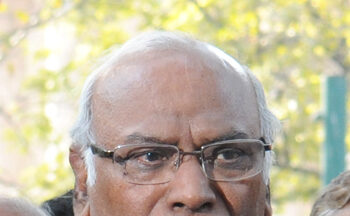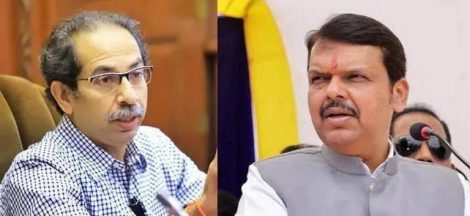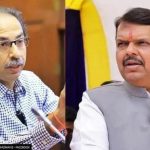Tamil Nadu Chief Minister MK Stalin has endorsed the rare political reconciliation between Maharashtra’s Uddhav Thackeray and Raj Thackeray, praising their united stance against what he deems Hindi imposition under the National Education Policy’s three-language model. The rally in Mumbai, celebrating the withdrawal of government resolutions mandating Hindi from Class 1, drew unprecedented praise from Stalin, who framed the movement as a national linguistic rights struggle transcending regional boundaries.
The Thackeray cousins, long estranged since their political split in 2005, reunited for a “Voice of Marathi” victory procession following Maharashtra Chief Minister Devendra Fadnavis’s rollback. Raj Thackeray condemned the abrupt introduction of Hindi, questioning why Hindi-speaking states such as Uttar Pradesh and Rajasthan compel their students to learn a third language, and lamented that Hindi-speaking regions lag economically despite their linguistic dominance. Uddhav Thackeray echoed this sentiment, challenging efforts to enforce Hindi in states like Tamil Nadu and Bengal: “We are not against any language, but if you make any compulsion, we will show our power”.
Stalin welcomed their combined message and urged a national wake-up call. He posted on X that the Tamil Nadu movement against Hindi imposition “has now transcended state boundaries and is swirling like a storm of protest in Maharashtra”. The chief minister strongly criticised the central government for linking education funding—specifically ₹2,152 crore under the Samagra Shiksha Abhiyan—to Hindi acceptance, and he demanded immediate release of withheld funds.
Maharashtra’s U‑turn followed intense backlash. Thackeray-led protests, including public burnings of the government resolutions, culminated in organized marches on 5 July. Maharashtra Deputy CM Ajit Pawar condemned the compulsory introduction of Hindi from Class 1, supporting an optional approach from Standard V, and backed statewide Marathi-first preaching. The state government cited NEP–mandated implementation for all Indian languages, while assuring Marathi’s primacy and mandating infrastructure to support students opting for other tongues.
Within Tamil Nadu, Stalin’s condemnation of the NEP’s language policy has been longstanding. The city’s government has steadfastly resisted the new policy, dragging the issue to the Supreme Court and refusing to partake in PM SHRI initiatives. The state has held firm in its own two‑language policy of Tamil and English, citing the historical significance of anti-Hindi agitations dating back to the 1930s, and the enduring legacy of Dravidian-led opposition. Stalin has consistently urged that all languages recognised by the Indian constitution be treated equally—an appeal that struck a chord with Thackeray’s rhetoric.
Stalin also highlighted that economic backwardness of Hindi-speaking states undermines claims that learning Hindi ensures prosperity. Raj Thackeray’s pointed question about why Hindi had failed to uplift its home states was quoted approvingly by Stalin. The Chief Minister framed the issue not in narrow regional terms, but as preservation of India’s pluralistic, inclusive ethos: “The struggle waged by the people of Tamil Nadu against Hindi imposition is not only emotional but also intellectual and logical to protect India’s plural culture”.
The spline of this political alignment could signal the resurgence of linguistic pluralism as a unifying political force. Maharashtra’s linguistic identity, championed by Shiv Sena and MNS, converges with Tamil Nadu’s enduring Dravidian resistance—suggesting potential synergy in broader opposition to centralising cultural policies. Political analysts suggest this could invigorate regional parties sensing threat of cultural homogenisation from NEP-style educational reforms.
Opposition to compulsory Hindi teaching, beyond linguistic preservation, taps into wider anxieties over federalism and cultural autonomy. Maharashtra’s rollback demonstrates the potency of coordinated public dissent—be it through student bodies, civil society, or political parties. For Stalin, the Thackeray rally validated his advocacy and showcased the merits of cross-border solidarity: “Come, let us unite,” he urged.
As central authorities prepare to decentralise the implementation framework of the NEP, state-level pushback continues. Tamil Nadu has not only legally challenged the policy, but also politically rallied support. India’s linguistic landscape—encompassing 22 constitutionally recognised languages—faces renewed debate, as the tension between national integration and regional self-expression resurfaces with vigor.
The alignment of Tamil Nadu’s opposition with Maharashtra’s regional defence marks a significant moment in India’s policy discourse. A movement that originally aimed to preserve Tamil’s status has now found resonance in Marathi-speaking circles. As education ministries reconsider language rollout, and funding hinges on policy adoption, the conversation has shifted from classrooms to the courts, platforms, and regional capitals—underscoring language as both cultural signifier and political instrument.




 Language Tensions Spark Political Blame Game in Maharashtra
Language Tensions Spark Political Blame Game in Maharashtra 